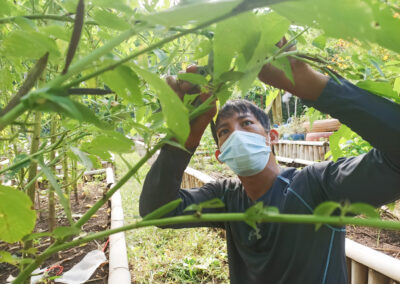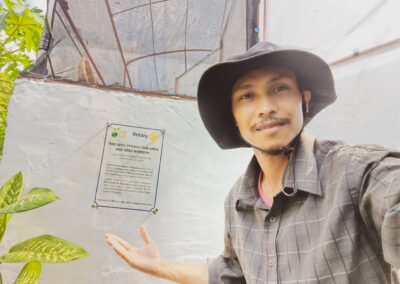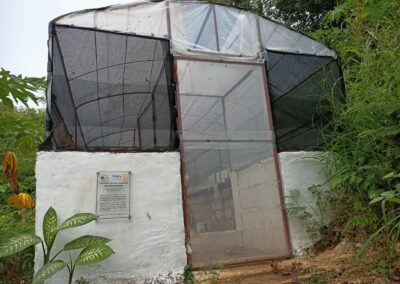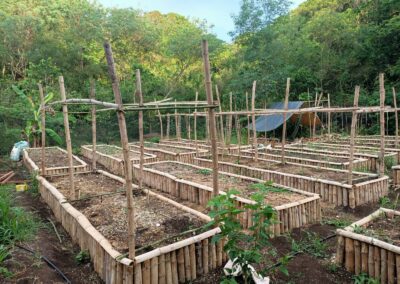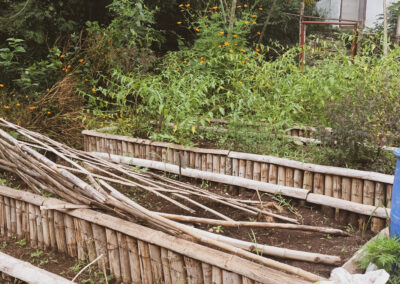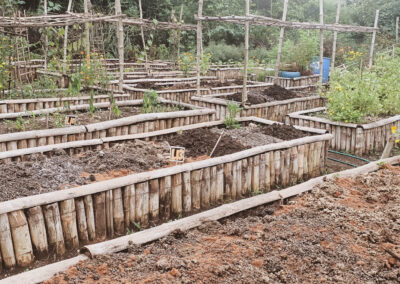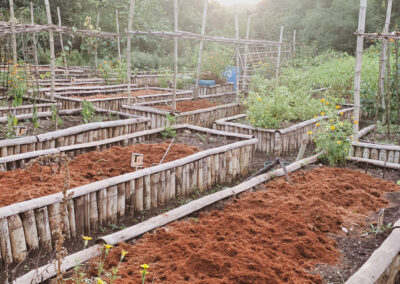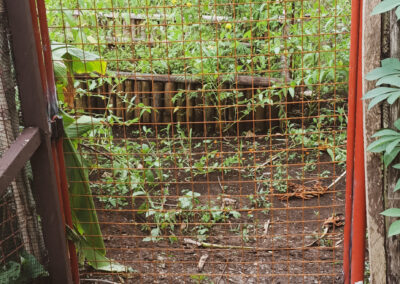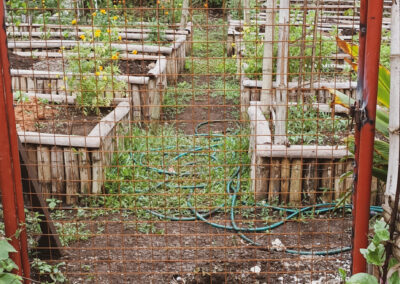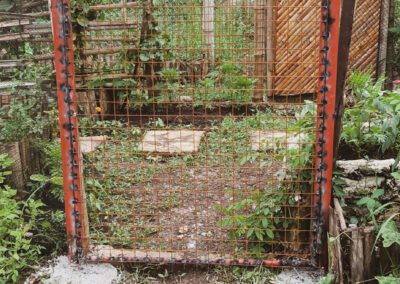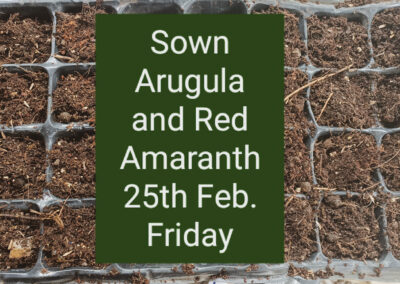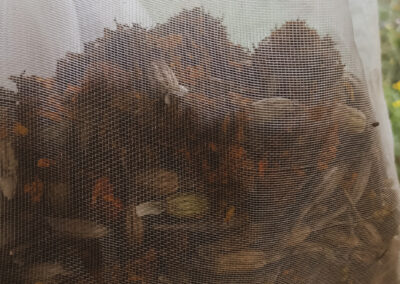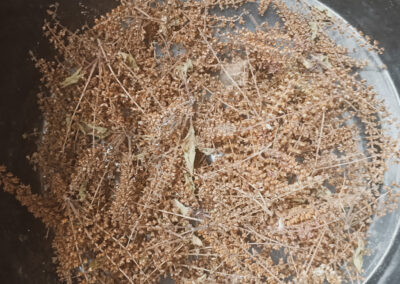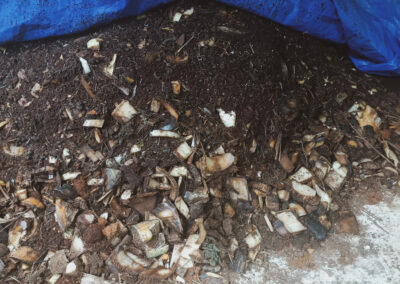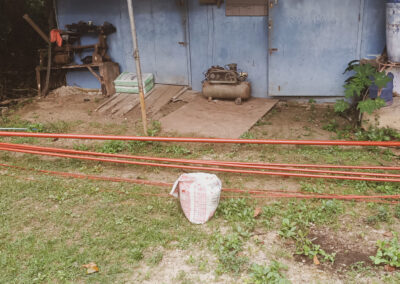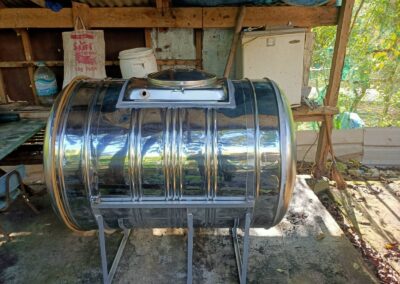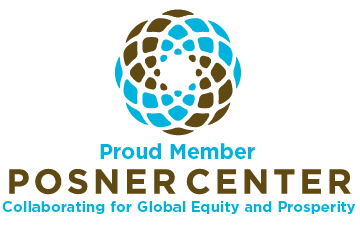Our Shoots
Arapal Seed Production
In 2020, GSS entered into a partnership with Arapal Nature Farm located outside fo Bogo City, Cebu to launch a seed trial production area, seed nursery, and seed library at Arapal Farm. The seed production area is 1,200 square meters and will serve as a model for other regions of what dedicating land to seed production can do.
Through the generous support from the Rotary District 5450 Grant Funding, a seed nursery and a second seed library in Cebu was constructed at Arapal Farm.
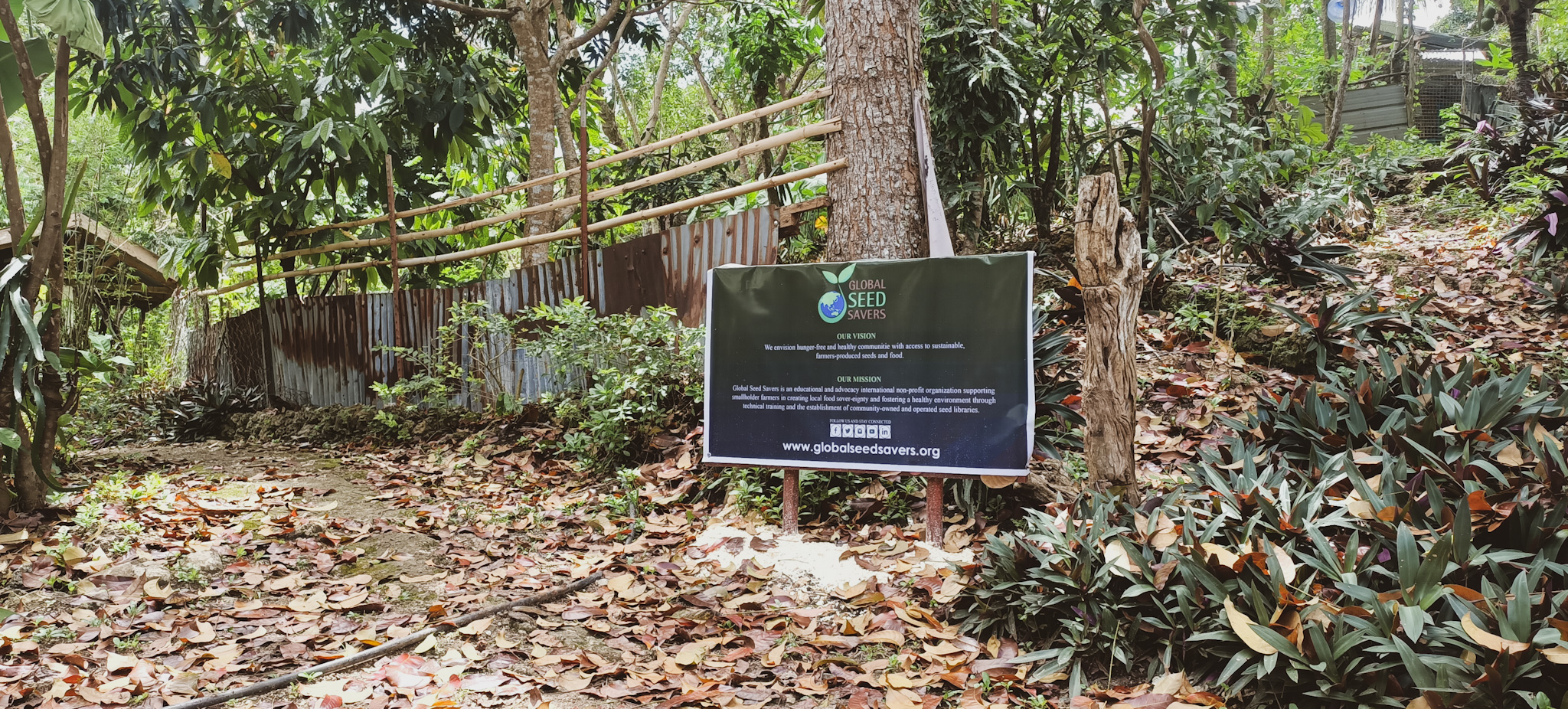
Entrance to the Cebu Seed Production Farm in Arapal
Photos from the Farm
Seed production and the importance of keeping seeds pure
Seeds are critical for agricultural production because it is their quality that will determine the efficacy and performance of other agricultural inputs. For example, it doesn’t matter how much fertilizers you use for your plants, if the seed is not regionally-adapted, or if it is no longer viable, then you cannot expect high yield. Research shows that the quality of seed alone accounts for atleast 10 to 15% of the increase in productivity in agriculture.[1]https://www.agrimoon.com/wp-content/uploads/PRINCIPLES-OF-SEED-TECHNOLOGY.pdf
Seeds are important because their capacity to adapt ensures that new generations of plant have developed resiliency against pests, droughts, floods, and other environmental conditions. And if plants are able to survive these climatic stresses, then we can ensure continued food supply for the population. Regionally-adapted seeds can also secure higher crop yields in areas characterized as unfavorable for food production using commercial seeds. Aside from this, good quality seeds can offer rapid rehabilitation of agriculture in areas affected by national disasters.
The availability of quality seeds that are adapted to different climatic conditions, in sufficient quantity, at affordable prices is key to raising productivity in agriculture. This essentially means that if we want to improve agricultural production in the Philippines, we must pay attention to how we grow our seeds.
Unknown to many, seed production is an entire science in itself. It requires great care from the choice of seeds, crop management, up to the process of harvesting.
Seed production requires:
- Basic seeds are from a pure, authentic source
- Seed plots are carefully selected, depending on the plant varieties that are grown
- Isolation of plant varieties from each other to ensure genetic purity of seeds
- Requires technical skill for maintenance of seed quality
- Consistent rouging is compulsory to ensure that only the best plants are brought to seed
- Harvesting of seeds is appropriately timed
- Resultant seeds should be tested for vigor and viability
- Seed quality is more important than the yield.
The Arapal Seed Production farm is crucial in our work because it will become a venue of testing for various systems of seed production which can be shared to farmers later on. Through the Seed Production Farm, we hope to ensure the continuous development of plant varieties that are resilient to climatic changes, as well as assure the adequate supply of open-pollinated, naturally-grown seeds for organic crop production.
Read the Results of the Early Seed Trials
Our first seed trials from March to December 2016 through the help of seven dedicated farmers.
The main reasons for initiating the seed trials are for organic and natural farmers to have a source of organic seeds in the country. Another goal was to remove dependence on hybrid and non-open pollinated seeds which are readily available from big agrochemical companies in the Philippines.
The secondary objectives of the seed trials are:
- to promote the practice of seed saving to farmers
- to debunk the myth that seed saving is difficult and financially taxing
- to test which crops are viable and adaptable to the country
- to ensure the diversity of crop varieties in the country.
Philippines Address
Our local staff work remotely
from various parts of the Philippines (Benguet, Cebu).
To contact our Philippines team, fill up this contact form.
US Address
Located at
The Posner Center
for International Development
1031 33rd Street, Ste. 174
Denver, CO 80205
info@globalseedsavers.org
Our US offices are based in Denver, Colorado, which is the land of the Cheyenne and Arapaho and 48 other Indigenous Tribes and Nations who call Colorado home. They are the original Stewards of this stolen land and it is because of their successes and continued hardships that we are able to engage in our collective work of restoring the indigenous practice of saving seeds.
